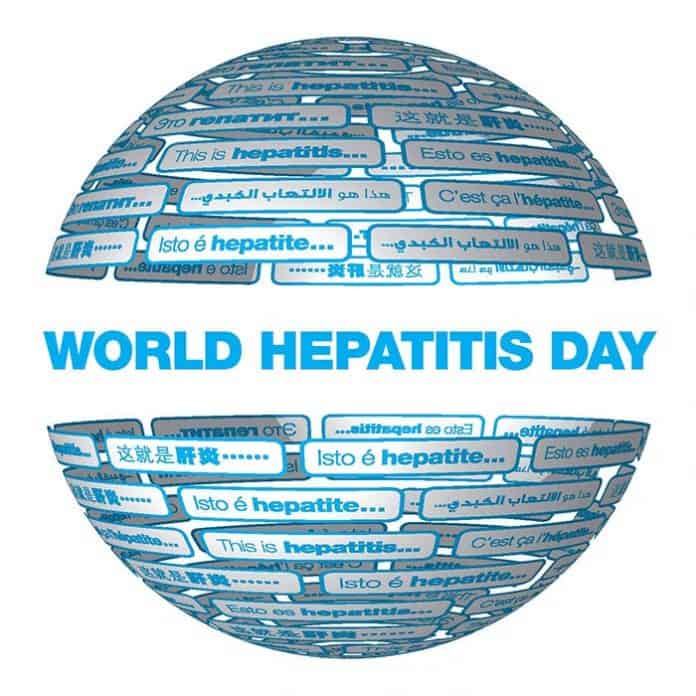
NEW JERSEY – In recognition of World Hepatitis Day on July 28, the New Jersey Department of Health is joining the World Health Organization (WHO) to raise awareness of the global burden of viral hepatitis.
Hepatitis refers to a group of contagious liver diseases — A, B and C — each caused by a different virus. Hepatitis A typically occurs in an “acute” or time-limited form, while hepatitis B and C can develop into a lifelong, chronic illness.
“The Department continues to encourage vaccination for Hepatitis A and B, especially for those who are most at risk,” Acting Health Commissioner Marcela Ospina Maziarz said. “Individuals should talk with their healthcare provider about their risk and steps they can take to protect themselves.”
Earlier this year, the Department supplied hundreds of vaccines to county health departments to immunize uninsured or underinsured individuals at risk of the liver disease after identifying an increase in Hepatitis A cases among persons reporting homelessness, drug use, and Men who have Sex with Men (MSM).
County and local health departments have also been working with shelters, community health centers, and homeless outreach services to vaccinate homeless individuals in several counties.
In 2018, there were 70 hepatitis A cases, 64 acute hepatitis B cases and 407 newly-identified chronic hepatitis B cases reported in the state.
Hepatitis A virus can cause mild to severe illness, but it does not lead to chronic infections. It is usually spread through contact with objects, food, or drinks contaminated by an infected person.
Hepatitis B infection is spread through blood and body fluids. People can be infected when they have sexual contact or share needles with an infected person. Hepatitis B can also be passed from an infected mother to her baby at birth. Hepatitis B can cause acute or chronic liver disease.
Pregnant woman should be tested for hepatitis B during their first prenatal visit, and every newborn should be vaccinated against hepatitis B before leaving the hospital.
The Department’s Office of Minority and Multicultural Health helps in leading the NJ Hep B Coalition, a partner of the Hep B United national coalition, which consist of 27 coalitions across the country, each dedicated to reducing health disparities associated with hepatitis B.
“Viral Hepatitis B and C are the leading causes of liver cancer worldwide. Deaths from viral hepatitis now exceed HIV, TB, and malaria. Yet, we have the tools to prevent, screen, and treat these infections. Thus, it is imperative we prioritize and utilize those tools.” said Dr. Su Wang, chair of the NJ Hepatitis B Coalition, Medical Director for the Center for Asian Health and president-elect for the World Hepatitis Alliance.
Hepatitis C is spread through contact with infected blood through sharing needles, syringes, or other equipment to inject drugs, needle stick injuries in healthcare settings, being born to a mother with hepatitis C, or sharing personal care items, such as razors or toothbrushes with an infected person. Less commonly, people can be infected through sexual contact with an infected person.
“Those with hepatitis C may have no symptoms and live with the disease for decades without feeling sick, all while liver damage may be taking place without their knowledge,” Acting Commissioner Maziarz said. “This is why getting tested is a critical step.”
Last year there were 112 acute hepatitis C cases and 7,148 chronic hepatitis C cases reported.
While there is no vaccine to prevent hepatitis C, there are steps individuals can take to prevent transmission. This includes never sharing needles, syringes, and other injecting equipment, and using condoms consistently and correctly.
The Centers for Disease Control and Prevention recommends that everyone born from 1945 to 1965 get a blood test for hepatitis C. People born during these years are five times more likely to be infected and account for more than three out of four Americans living with hepatitis C.
World Hepatitis Day, sponsored by the WHO, has evolved into a global campaign and initiative to eliminate viral hepatitis as a public health threat by 2030.







